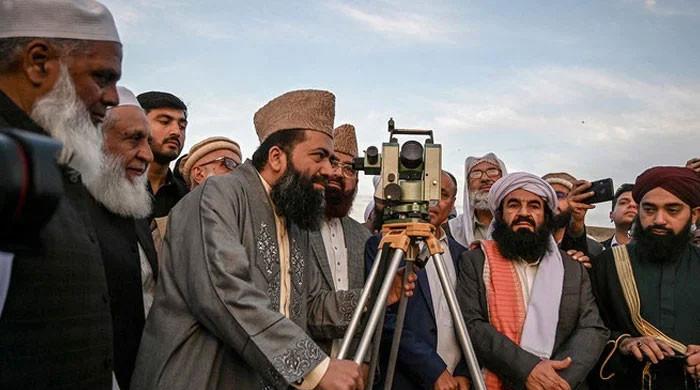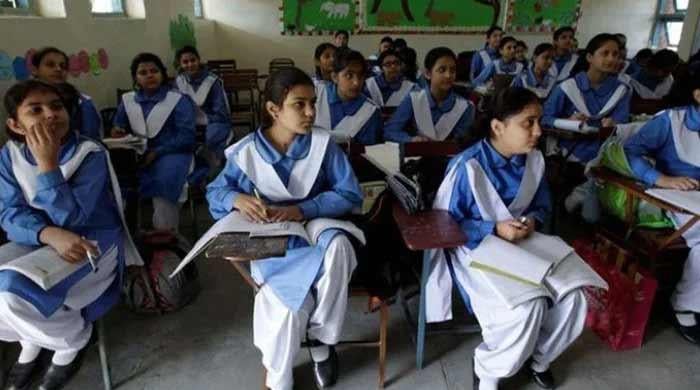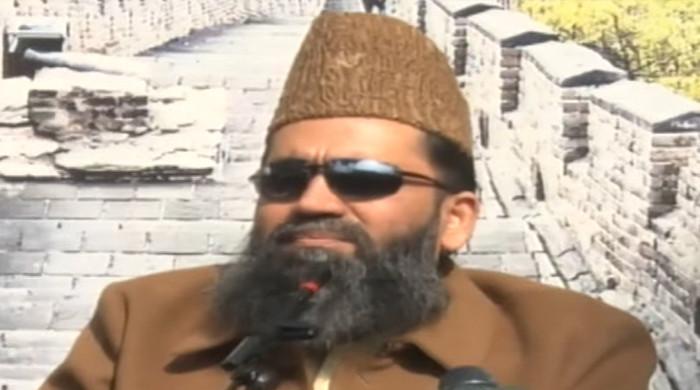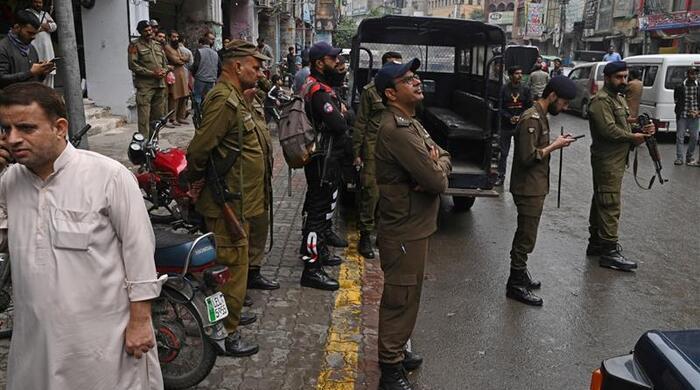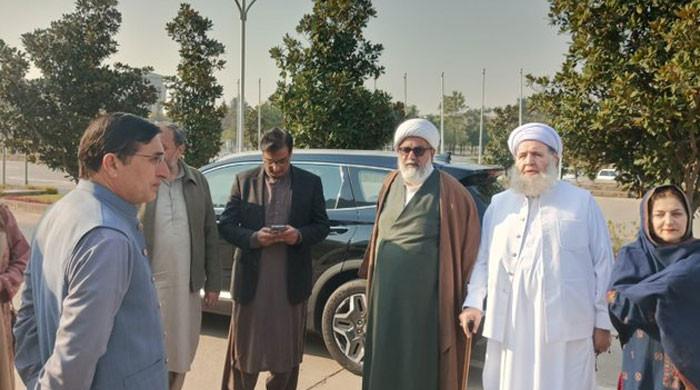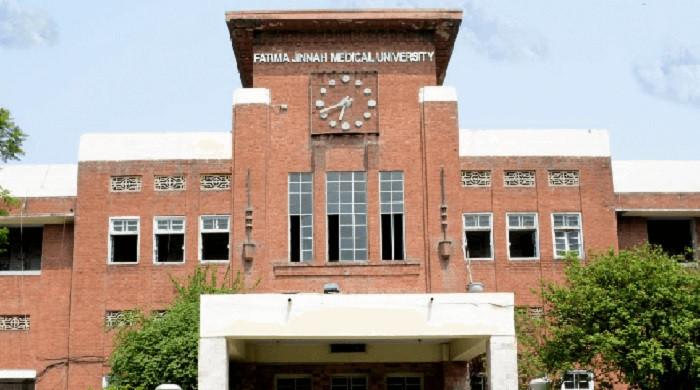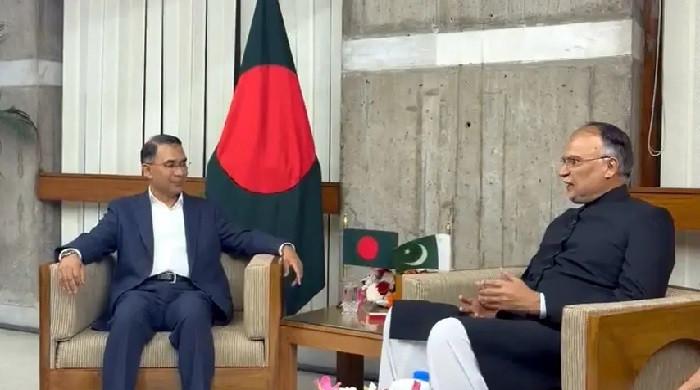Senate Election 2021: PTI emerges as largest party, but victory bittersweet
PPP's Yousuf Raza Gilani pulls off upset, emerging victorious against PTI's Hafeez Shaikh on the Islamabad general seat
March 03, 2021
- PTI emerges the biggest victor with 18 seats, followed by PPP with 8.
- The most-watched contest took place between PDM's Yousuf Raza Gilani and PTI's Hafeez Shaikh with the former emerging victorious.
- MPs voted for 37 vacant seats of the Senate with 11 senators previously elected unopposed from Punjab.
ISLAMABAD: The much-awaited Senate elections ended with PTI emerging as the top victor with 18 seats, followed by PPP with eight.
Victory for PTI, however, was bittersweet, as in the contest between both parties for the Islamabad general seat, PPP's Yousuf Raza Gillani defeated PTI's Hafeez Shaikh.
PPP Chairman Bilawal Bhutto-Zardari triumphantly tweeted: "Democracy is the best revenge. Jeya Bhutto!"
According to the returning officer, who announced the results after counting ended in the National Assembly, six of the total 340 ballots cast in the National Assembly were rejected.
Gillani obtained 169 votes, whereas Shaikh got 164. One vote was not cast.
The MPs were required to vote for 37 vacant seats of the Senate with 11 senators already elected unopposed from Punjab due to withdrawals from opposing candidates.
Polling was held for 12 seats each of Balochistan and Khyber Pakhtunkhwa, 11 of Sindh and two of the federal capital.
MPAs from the three provincial assemblies cast their vote for the candidates fielded from Balochistan, KP and Sindh, while MNAs voted for the representatives from the federal capital.
Senate Elections 2021 explained: What to expect on the big day
Following the contest on 48 seats this year, the graph below shows the latest composition in the Senate.
Breakdown of results
Unofficial results from the provincial assemblies are broken down below.
Balochistan Assembly
In the Balochistan Assembly all 65 members cast their votes, with the last vote cast by Mir Hamal Kalmati of the BNP.
The government and its allies have secured seven out of the 12 total seats — four general, one women, one technocrat and one minority.
Meanwhile, the Opposition has obtained five — two general, one women, and one technocrat.
General
Of the total seven candidates that won general seats, four were backed by the government, two from the Opposition and one was an independent candidate, Abdul Qadir, who backed jointly by the BAP and PTI.
ANP's Arbab Muhammad Umar Farooq, and BAP's Ahmed Kakar, Sarfaraz Ahmed Bugti and Prince Ahmed Umar Ahmed were the candidates supported by the government that have each been elected to a general seat.
Meanwhile JUI-F's Maulana Abdul Ghafoor Haideri and BNP's Muhammad Qasim were the candidates that enjoyed support from the Opposition and have each won a general seat.
Women
Of the two women's seats, BAP candidate Samina Mumtaz who was backed by the government won one, as did Nasima Ahsan, an independent candidate who joined ANP a day earlier and enjoys support from the Opposition.
Technocrat
Of the two technocrat seats, JUI-F's Kamran Murtaza, an Opposition-backed candidate emerged victorious for one and BAP's Saeed Ahmed Hashmi, who enjoys the BAP-PTI coalition's support, secured the other.
Minority
Government-backed BAP candidate Dhanesh Kumar won the minority seat.
Sindh Assembly
In the Sindh Assembly, 167 out of 168 members cast their votes, as Jamaat-e-Islami member Abdul Rashid did not cast his. Out of the 167 ballot papers cast, four were rejected.
The race between candidates was for a total of eleven seats. PPP bagged seven — five general, one women and one technocrat.
The government won four — two general, one women and one technocrat.
General
PPP's Saleem Mandviwalla, Sherry Rehman, Taj Haider, Shahadat Aiwan, and Jam Mehtab Dhar have been elected to general seats.
Among the government candidates PTI's Faisal Vawda won one seat while its allied party MQM's Faisal Sabzwari won the other.
Women
PPP's Palwasha Khan won one seat with 60 votes. The party's other candidate Rukhshana Shah secured 46 votes.
MQM candidate Khalida Ateeb emerged the second victor, obtaining eight votes less from the Opposition side, but managing to secured 57 votes.
Technocrat
Of the two technocrat seats PPP's Farooq H Naek won one with five more votes that the opponents, whereas PTI's Saifullah Abro won the other with 57 votes.
PPP candidates got a total of 104 votes, with Naek getting 61 and Kareem Khwaja getting 43.
The PTI allied parties got eight votes fewer than the Sindh government candidates.
KP Assembly
In the Khyber Pakhtunkhwa Assembly all 145 votes by members were cast. The polling time had been extended due to some unknown difficulties.
Unofficial results for all the 12 seats are in.
General
PTI's Shibli Faraz, Mohsin Aziz, Zeeshan Khanzada, Faisal Saleem and Liaqat Khan Tarakai have won a general seat each.
ANP's Hidayatullah Khan also one won seat, besides JUI-F's Atta-ur-Rehman.
Technocrat
PTI swept the technocrat category too with candidates Dost Muhammad Mehsood and Muhammad Humayun Khan taking the two seats up for grabs.
PPP's Farhatullah Babar was dealt a defeat in this category.
Women
Of the two women seats, PTI's Sania Nishtar won one, with 56 votes, while another candidate from the party, Falak Naz obtained the other with 51 votes.
Minority
PTI minority candidate Gurdeep Singh won the minority seat.
Controversies around the Senate polls
The government, in the lead up to the polls, accused the Opposition of being involved in illegal activity by using money to gain votes, while the Opposition blamed the ruling PTI for raising the open ballot issue because it is not sure of its lawmakers’ loyalties.
The blame-game gained intensity on Tuesday when a video of Ali Haider Gilani, son of Pakistan Democratic Movement’s Senate candidate Syed Yousuf Raza Gilani, emerged in which he was allegedly telling the PTI MPAs how to discard votes.
The PPP leader admitted that he was in contact with the PTI members who had approached him to seek help.
Another audio of Sindh Minister Nasir Hussain Shah was widely shared on social media in which he was allegedly talking to PTI MPAs regarding the Senate election. The minister, however, has denied he ever talked to them and referred the matter to Ali Gilani.
Read more: Govt to demand Yousuf Raza Gilani's disqualification from Senate election
Gillani vs Shaikh
An epic encounter was expected in the National Assembly for the Islamabad seat where the PPP stalwart and PDM candidate Yousuf Raza Gilani stood for an Islamabad general seat against ruling party candidate Dr Abdul Hafeez Shaikh.
The current strength of the National Assembly is 341 (one seat – NA-75 is vacant) and the ruling party candidate apparently enjoyed the support of 180 MNAs.
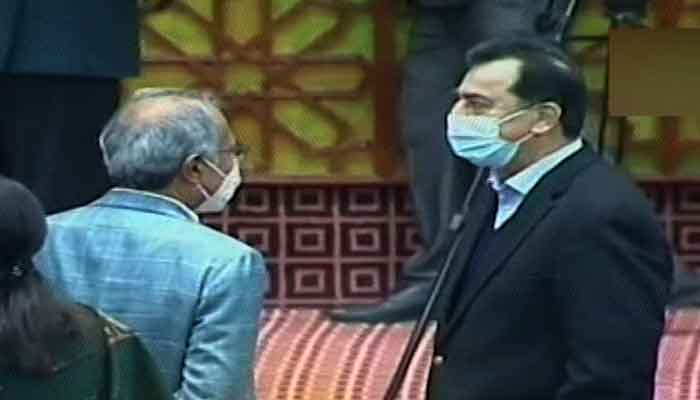
It was estimated that Shaikh’s contender Gillani enjoys the support of 161 MNAs, including 83 of the PML-N, 55 of the PPP and 15 of MMA and the rest of like-minded parties like the ANP, BNP and three out of total four independents.
Gillani ran a robust campaign. Since the balloting is secret, Gilani enjoyed the advantage of hidden support from MNAs, who have been his former colleagues, friends or those who are annoyed with the government.
As for the experience of connectivity with the parliamentarians and as a politician, Gillani visibly stood head and shoulders above Shaikh. When contacted, Gillani said, "Democratic forces" were with him.
Read more: Video surfaces of Ali Haider Gilani allegedy telling lawmaker how to waste his Senate vote
On the other hand, Shaikh, who could rightly be called the opening batsman of PM Imran Khan's regime, is a sitting federal minister and his strength mainly lay in the personal numbers of the PTI and allies in the House.
The PDM had feared that the prime minister's promise of development funds for MNAs could impact the Senate elections.




